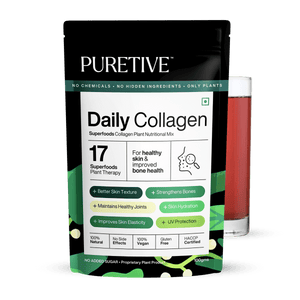Dealing with dermatitis—characterized by red, itchy, and inflamed skin—can be both frustrating and perplexing. Whether you're contending with eczema, contact dermatitis, or another form of skin inflammation, understanding the role of allergens in triggering flare-ups is crucial for effective management. Let’s delve into how allergens might be affecting your skin and explore practical strategies to identify and avoid these sneaky culprits.
Understanding Dermatitis
Dermatitis is a broad term for skin inflammation that causes symptoms such as redness, itching, and swelling. Common forms include eczema and contact dermatitis. Various factors can trigger these reactions, including irritants like chemicals and allergens. Effectively managing dermatitis involves not only avoiding these triggers but also incorporating proper skincare and, if necessary, medications.
Common Allergens to Watch Out For
Fragrances: Found in a wide array of products—from perfumes and soaps to lotions and cleaning agents—fragrances are a frequent cause of skin irritation. The synthetic chemicals used to create scents can be particularly harsh on sensitive skin.
Nickel: This metal, commonly found in jewelry, belt buckles, and some clothing fasteners, is a well-known allergen. Even minimal contact with nickel-containing items can trigger dermatitis in susceptible individuals.
Certain Foods: Dietary triggers vary from person to person, but foods such as nuts, dairy, and gluten are commonly linked to dermatitis flare-ups. Identifying food-related triggers requires careful observation and sometimes professional guidance.
Identifying Your Triggers
Patch Testing: One of the most effective methods for pinpointing specific allergens is through patch testing. Consult a dermatologist to conduct this test, which involves applying small amounts of potential allergens to your skin and observing for reactions.
Keep a Diary: Maintaining a detailed diary of your daily activities can help identify patterns related to flare-ups. Record what you eat, the skincare products you use, and any changes in your environment. Over time, this log can reveal correlations between certain exposures and your skin’s reactions.
Monitor Reactions: Stay vigilant about how your skin responds to new products, foods, or environmental changes. Noting these reactions can help you identify and avoid potential allergens more effectively.
Avoiding Allergens
Read Labels Carefully: Always check the labels of skincare, household, and personal care products for potential allergens. Look for terms like “fragrance-free” or “hypoallergenic” to minimize the risk of irritation.
Choose Hypoallergenic Products: Opt for products specifically designed for sensitive skin. These are often formulated without common allergens and irritants, making them a safer choice for managing dermatitis.
Create a Safe Environment: Maintaining a clean and allergen-free living space can reduce flare-ups. Regularly clean your home to minimize dust and pet dander, and consider using air purifiers if you’re sensitive to environmental allergens.
Taking Control of Your Skin Health
Understanding the role of allergens in dermatitis is pivotal for effective management and prevention of flare-ups. By identifying your specific triggers and making proactive changes to avoid them, you can take significant strides toward healthier, happier skin. Embrace these strategies to gain control over your skin health and minimize the impact of dermatitis on your daily life.
With these insights and practical tips, you can better navigate the complexities of dermatitis and enjoy a more comfortable and irritation-free life.









